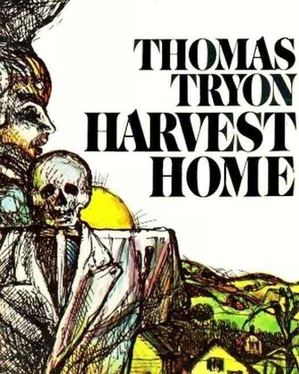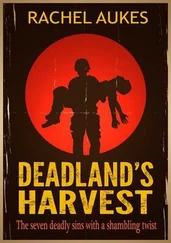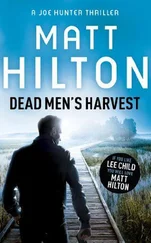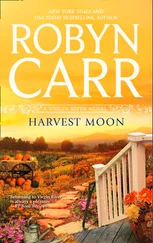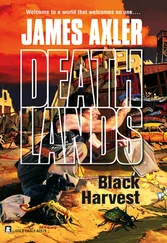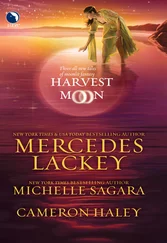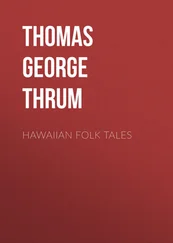Thomas Tryon - Harvest Home
Здесь есть возможность читать онлайн «Thomas Tryon - Harvest Home» весь текст электронной книги совершенно бесплатно (целиком полную версию без сокращений). В некоторых случаях можно слушать аудио, скачать через торрент в формате fb2 и присутствует краткое содержание. Жанр: Ужасы и Мистика, на английском языке. Описание произведения, (предисловие) а так же отзывы посетителей доступны на портале библиотеки ЛибКат.
- Название:Harvest Home
- Автор:
- Жанр:
- Год:неизвестен
- ISBN:нет данных
- Рейтинг книги:5 / 5. Голосов: 1
-
Избранное:Добавить в избранное
- Отзывы:
-
Ваша оценка:
- 100
- 1
- 2
- 3
- 4
- 5
Harvest Home: краткое содержание, описание и аннотация
Предлагаем к чтению аннотацию, описание, краткое содержание или предисловие (зависит от того, что написал сам автор книги «Harvest Home»). Если вы не нашли необходимую информацию о книге — напишите в комментариях, мы постараемся отыскать её.
For Ned and his family, Cornwall Coombe was to be come a place of ultimate horror.
Harvest Home — читать онлайн бесплатно полную книгу (весь текст) целиком
Ниже представлен текст книги, разбитый по страницам. Система сохранения места последней прочитанной страницы, позволяет с удобством читать онлайн бесплатно книгу «Harvest Home», без необходимости каждый раз заново искать на чём Вы остановились. Поставьте закладку, и сможете в любой момент перейти на страницу, на которой закончили чтение.
Интервал:
Закладка:
The light had not died in her eyes; their whiteness blazed at each thrust, her thighs sliding against me not in protest, but widening, opening herself to let me find her, to make me take her. Digging my feet into the ground for purchase, I felt my buttock muscles knot as I arched my back and drove myself into her. She shuddered and cried out then, but when I freed her hands her arms welcomed me in embrace. I wound my fingers in her wet hair and gripped, still wanting to kill her, not with my hands but with that other part of me that she had aroused. I worked at her and worked, then halted, watching her eyes roll, wild like an animal’s, holding her impaled on me, for I would not finish yet, and when I had mastered myself I worked again, rearing and plunging, and mixed with my curses and her passion were the sounds of our clashing bodies, muscles and tissue, the bulging noises I could force from her, the thud of my chest against hers, the slap of our wet bellies.
It became a duel. Willingly she would take from me, but I would not give to her. There would be no ecstasy for her, only pain. But her pain became her ecstasy. “Oh, yes,” she moaned, “my Greek, my Lord. Plow me, plow me.” A full-throated plea and the water ran from her body in rivulets down the bank, mixing with the dark clay, and I dug handfuls of it and, riding her, ramming her against the ground, I smeared it in her face, the substance of Mother Earth, rubbing it in her eyes and ears, stopping her mouth with it, forcing her cheeks to wallow in it, her shoulders and breasts, ever driving, thrusting, pulling back, and ramming her again, sucking the saliva up from my throat and spitting it in her face, the face of the Mother goddess, driving against her, twisting, to batter her pliant flesh, to drive the goddess back into Mother Earth and bury her there.
She did not stop her words and though I battled her and thought the battle mine, she worked upon me to have her way, inviting my violence, glorying in it, using all her parts, and I, losing, thought that no machine had ever been so cleverly invented, so beautifully crafted to provide pleasure. I fought her with the strength of my body, but hers was stronger. As I surged into her, I heard my curses soften, heard them become endearments. I put my mouth to her breasts and sucked. Murmuring, she held me gently in her arms and I knew I had lost then. The duel was hers. Fulfilling me, she had vanquished me. I had not taken her and violated her, for the earth was not to be taken or violated, and she was of the earth. She was earth itself, the Mother goddess, and even as my semen flowed I could feel my eyes sting as the tears came; the man unmanned, defeated by the woman.
I grasped her wrists again and shudderingly withdrew, our bodies parting with a hollow sucking noise. As she lay panting against the wet clay, I could see her bruised, triumphant smile and I saw she knew it, too; she was the victor.
I tasted earth in my mouth. Turning, I spat, then filled my lungs and, wheeling, flung myself in the water, submerging, rubbing my hands over my flesh, cleansing it, watching the dark clay loosen from my body, break up, and float away in the current. When my breath was spent, I limply pushed myself to the surface. I slicked my hair from my eyes and looked at the bank. She was not there, but imprinted in the wet clay was the hollow of her form, and it seemed as if she had entered there, the goddess returned to the earth.
26
The goddess. I comprehended it, or thought I did. The doll in Justin’s cornfield represented the Mother. The Mother was the goddess. The goddess provided fertility. Fertility was needed. Without it, there would be no corn. Without corn, no money or food. Without them, people died. Doll; Mother; fertility. Hope; belief.
They all believed. All the village. They wanted me to believe, too. It was shocking, yet terribly simple.
And Harvest Home was coming.
Harvest Home! A time o’ joy and celebration. Eat, drink, and be merry. It means success and thanks and all good things.
But this, the seventh year, was special. Not all good things, perhaps. “What no man may know nor woman tell.” This was the heart of it. A secret revealed; but what?
I slowed my car as the Tatum farm rose at the crest of the hill on my right, the silhouetted buildings bleakly huddled together. There was no sign of the pickup truck, nor indeed of any activity, other than the youngest girl, Debbie, standing in the dirt track, twisting the hem of her dress and wailing, evidently frightened by the fierce clamor of hogs in the pen near the barn.
I stopped to investigate. I could hear the pigs’ grunting bodies heaving against the sty, their wet eyes inquisitively surveying me. A board had become loosened, and I pounded it in place with a rock, then drove off. Begrimed, with a runny nose, Debbie watched me go.
Beyond the house the landscape lay in somber peace. A smoky haze drifted over the cornfield, the cornstalks lying helter-skelter among the bearded stubble, the shocks diminishing in size as they stretched away from the road to the ridge. Behind them slid the sun.
Pulling to the roadside, I gazed off at the desolate vista; then, listening carefully, I got out, crossed the road, and stepped into the field. Dead stalks cracked underfoot. From somewhere ahead in the field was coming a strange sound: an uncanny, hollow clank or rattle, faint at first, then more distinct. In the amber light, the hulking sheaves seemed forbidding, sinister. Then I recognized the sound: tin cans swaying on the ends of their strings, the pebbles inside making a dull clanking noise, but doing little to repel the two crows which, shiny and black, sat huddled like felons, one on each shoulder of a solitary scarecrow.
It was impossible to account for the tumult of the pigs; squeals and cries pierced the air as their fury drove them to fresh efforts to break from the sty. I got back in the car and began driving down the road; then behind me I heard Debbie’s cry. I looked back to see her dashing for the porch as the boards of the pen gave way and the pigs raced past her, charging across the lawn, heads lowered, a tide of frenzied shapes spilling down the slope and into the field, their short legs trampling the earth, overturning the piled shocks as they swept across the furrows.
Debbie sat down on the steps and wailed louder than ever.
Lights had come on in the windows of the houses along the way, and I could see people sitting down to early supper before Kindling Night. I was tired, and awash with guilt. I cursed myself for a fool, scarcely remembering the scene with Tamar on the mudbank-not what had happened, but how it had come about. Arriving at the country end of Main Street, I drove past the dark figure of a man leaning on a rake handle, watching piles of leaves smolder and burn. As the smoke drifted, blue and pungent, I heard the sound of a horse’s hoofs, and the familiar creaking of wheels; ahead, the Widow Fortune’s buggy emerged from Penrose Lane. The mare looked docile as she moved along; not so the old lady, who sat upright on the seat, her shoulders thrown back, her hands gripping the reins. I couldn’t see her face, only the white cap tied under her chin, nor did she notice me coming along; or if she did she made no sign. She wheeled onto Main Street and headed the horse in the direction of her house. I watched the white cap disappear into the gloom; then I drove into the lane.
“Hello, Ned .” Maggie Dodd was out in front of her house, laying plastic covers over the flower beds along the side of the hedge. I called good evening.
“I’ve just been putting my bulbs to bed. Have a good day?”
I made some reply and turned into my drive. The Invisible Voice came from Robert’s sun porch. Beth’s station wagon was in the garage. Leaving my car in the drive, I went in through the kitchen door. There was no light on, except for the fluorescent stove panel, which glowed eerily. Kate was standing by the table-not doing anything, just standing there.
Читать дальшеИнтервал:
Закладка:
Похожие книги на «Harvest Home»
Представляем Вашему вниманию похожие книги на «Harvest Home» списком для выбора. Мы отобрали схожую по названию и смыслу литературу в надежде предоставить читателям больше вариантов отыскать новые, интересные, ещё непрочитанные произведения.
Обсуждение, отзывы о книге «Harvest Home» и просто собственные мнения читателей. Оставьте ваши комментарии, напишите, что Вы думаете о произведении, его смысле или главных героях. Укажите что конкретно понравилось, а что нет, и почему Вы так считаете.
